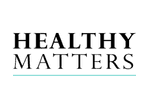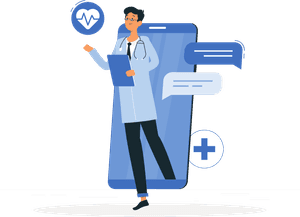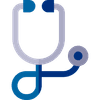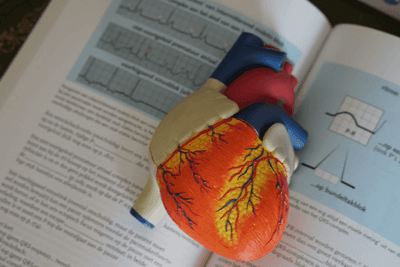![Healthy Matters]() Pharmacist Tips | Dosages | Side effects
Pharmacist Tips | Dosages | Side effects![Healthy Matters]() Nutritionist Tips | Facts | Precautions
Nutritionist Tips | Facts | Precautions![Healthy Matters]() Practitioner Tips | Dosages | Side effects
Practitioner Tips | Dosages | Side effects![Healthy Matters]()
![Healthy Matters]()

Why Women Are More Likely to Die of Heart Attack
3 min read

Heart disease, which is often first diagnosed after a heart attack, is the third leading cause of death in Hong Kong, causing 13.6% of female deaths in 2016. Heart attacks are often missed in women as they generally experience symptoms differently than men. We explain how heart attack symptoms are experienced between genders.
Heart attacks are a leading cause of death in women
Ask a random person on the street what they think the leading cause of death is for women and they will likely mention cancer. But actually, women are more likely going to die from a heart attack than breast cancer. Heart diseases account for 18.5% of female deaths worldwide and 17.3% of male deaths. There is a lot of attention paid to various types of cancer in women but less attention paid to heart health.
Women are more likely to die of heart attacks than men
According to a study conducted in the United States in 2016, women are more likely to die of heart attacks than men. Within 5 years of their first heart attack, 47% of women versus 36% of men will die, suffer a stroke, or develop heart failure. It’s unclear why that is the case, but, according to researchers at Johns Hopkins Medical School, part of the reason may be that women have abnormal symptoms when experiencing heart attacks so end up receiving medical attention later than men who primarily experience “typical” symptoms.
Women who present at the emergency ward are also less likely to have their symptoms attributed to a heart attack. A Yale University study published in February 2018 found that 53% of women versus 37% of men reported that their healthcare provider did not think their symptoms were heart-related.
According to Clinical Assistant Professor in Cardiology at HKU, Dr. Michael Chan 陳栢羲醫生:
“There is increasing evidence of sex differences in the clinical presentation of patients with heart attacks. Although the majority of heart attack patients present with typical symptoms (such as chest pain/tightness, upper body pain and sweating), women often present with atypical chest pain or angina-like symptoms such as breathlessness, indigestion and unusual fatigue. This different presentation of symptoms sometimes leads to a delay in identifying heart attacks in females, appropriate triage in the A&E department, careful diagnostic testing and timely revascularisation – these delays result in higher mortality rates from heart attack in women.”

General heart attack risks
Apart from family history, a lot of the risks of heart diseases are lifestyle factors.
- Age 45+ in men and 55+ in women
- Long-term tobacco smoking or exposure – this seems to be particularly important in women
- High blood pressure
- High blood cholesterol
- Diabetes
- Lack of physical activity
- Obesity
- Stress
- Illegal drug use
- An autoimmune disease
Female heart attack risks
Specific to women is the stress of pregnancy and childbirth on the body. Pre-eclampsia, high blood pressure in pregnancy, increases a woman’s risk of a heart attack later in life by 2-3 times.
Heart attack symptoms are experienced differently by women
It’s important to catch a heart attack early to mitigate the damage to the heart and lack of blood flowing through the body. While the majority of patients have chest pain (87% of women; 89.5% of men), women tend to experience more non-classic symptoms than men and are more likely to attribute their symptoms to stress or anxiety (21% vs. 11% of men).
Classic symptoms:
- Pressure, aching or tightness in the centre of the chest
- Pain or discomfort radiating to the upper body, particularly shoulders, neck or arms
- Unexplained sweating
Non-classic symptoms:
- Pain in the back, between the shoulder blades, jaw, lower abdomen, lower chest
- Nausea
- Vomiting
- Fatigue
- Shortness of breath
“Many women may think that heart attack symptoms are unmistakable. Unfortunately, the truth is that it is more common for women to have atypical symptoms. I’ve had female patients take a few tablets of sublingual nitrates or even aspirin when they thought they might be having a heart attack… But in fact, they should have called 999 or attended the A&E department.”
says Dr. Michael Chan 陳栢羲醫生 who also works in private practice at the Gleneagles Hospital.
If you or someone near you has a suspected heart attack, it’s important to seek emergency services as quickly as possible. It is unsafe to drive yourself to the hospital. Call 999 for an ambulance.
Reviewed by Dr. Michael Pak Hei Chan 陳栢羲醫生, Specialist in Cardiology, Gleneagles Hong Kong Hospital. Dr. Chan is the Clinical Assistant Professor in Cardiology of the University of Hong Kong and he is currently working at the Gleneagles Hong Kong Hospital. He received his medical degree from the University of Hong Kong and is a fellow of the Hong Kong College of Cardiology, the Hong Kong College of Physicians, the Hong Kong Academy of Medicine, Royal College of Physicians of Edinburgh, Royal College of Physicians and Surgeons of Glasgow, and the American College of Cardiology. Prior to commencing private practice, he worked for more than 14 years in the Cardiology Division of Queen Mary Hospital. His expertise includes percutaneous coronary intervention of complex coronary artery disease and minimally invasive trans-catheter valve therapies including trans-catheter aortic valve implantation and left atrial appendage occlusion. Dr. Chan has published over 60 peer-reviewed articles in major cardiology journals including JACC and Circulation. He is also a pioneer in Hong Kong for conducting community-based screening for atrial fibrillation and setting up the emergency 24-hour primary angioplasty service in the public sector.
This article was independently written by Healthy Matters. It is informative only and not intended to be a substitute for professional medical advice, diagnosis or treatment. It should not be relied upon for specific medical advice.

Your health resource, made in Hong Kong
Healthy Matters is Hong Kong’s leading health resource. Our mission is to help you make better health decisions and take control of your health.
Our team of experts is committed to producing reliable health content that is accurate, engaging and relevant, to cover your health & wellness journey from prevention to treatment.
Whether you are looking for trusted information on health conditions, wellbeing or looking for the right doctor or service in Hong Kong, we’re here to help!
Your health matters. Begin your health journey with Healthy Matters today!
































